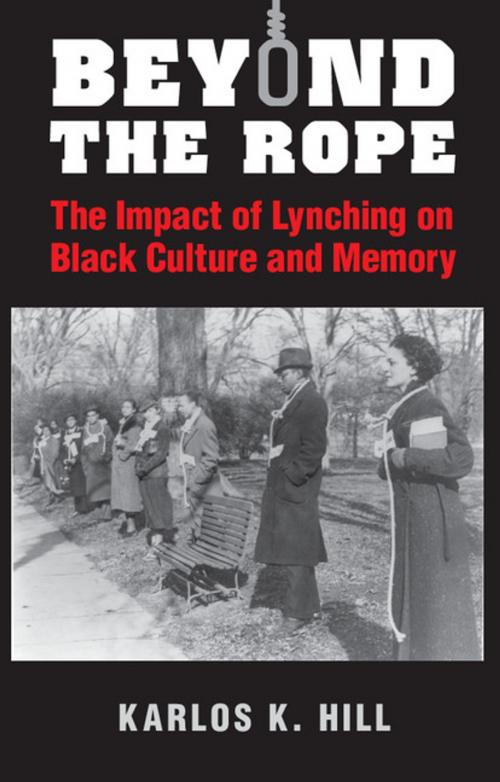Beyond the Rope
The Impact of Lynching on Black Culture and Memory
Nonfiction, History, Military, Social & Cultural Studies, Social Science| Author: | Karlos K. Hill | ISBN: | 9781316789186 |
| Publisher: | Cambridge University Press | Publication: | July 11, 2016 |
| Imprint: | Cambridge University Press | Language: | English |
| Author: | Karlos K. Hill |
| ISBN: | 9781316789186 |
| Publisher: | Cambridge University Press |
| Publication: | July 11, 2016 |
| Imprint: | Cambridge University Press |
| Language: | English |
Beyond the Rope is an interdisciplinary study that draws on narrative theory and cultural studies methodologies to trace African Americans' changing attitudes and relationships to lynching over the twentieth century. Whereas African Americans are typically framed as victims of white lynch mob violence in both scholarly and public discourses, Karlos K. Hill reveals that in the late nineteenth and early twentieth centuries African Americans lynched other African Americans in response to alleged criminality, and that twentieth-century black writers envisaged African American lynch victims as exemplars of heroic manhood. By illuminating the submerged histories of black vigilantism and consolidating narratives of lynching in African American literature that framed black victims of white lynch mob violence as heroic, Hill argues that rather than being static and one dimensional, African American attitudes towards lynching and the lynched black evolved in response to changing social and political contexts.
Beyond the Rope is an interdisciplinary study that draws on narrative theory and cultural studies methodologies to trace African Americans' changing attitudes and relationships to lynching over the twentieth century. Whereas African Americans are typically framed as victims of white lynch mob violence in both scholarly and public discourses, Karlos K. Hill reveals that in the late nineteenth and early twentieth centuries African Americans lynched other African Americans in response to alleged criminality, and that twentieth-century black writers envisaged African American lynch victims as exemplars of heroic manhood. By illuminating the submerged histories of black vigilantism and consolidating narratives of lynching in African American literature that framed black victims of white lynch mob violence as heroic, Hill argues that rather than being static and one dimensional, African American attitudes towards lynching and the lynched black evolved in response to changing social and political contexts.















